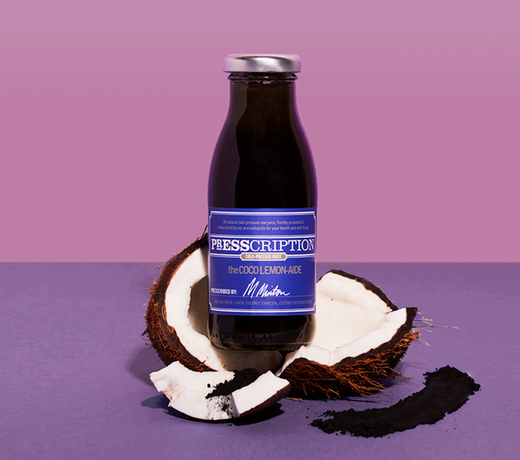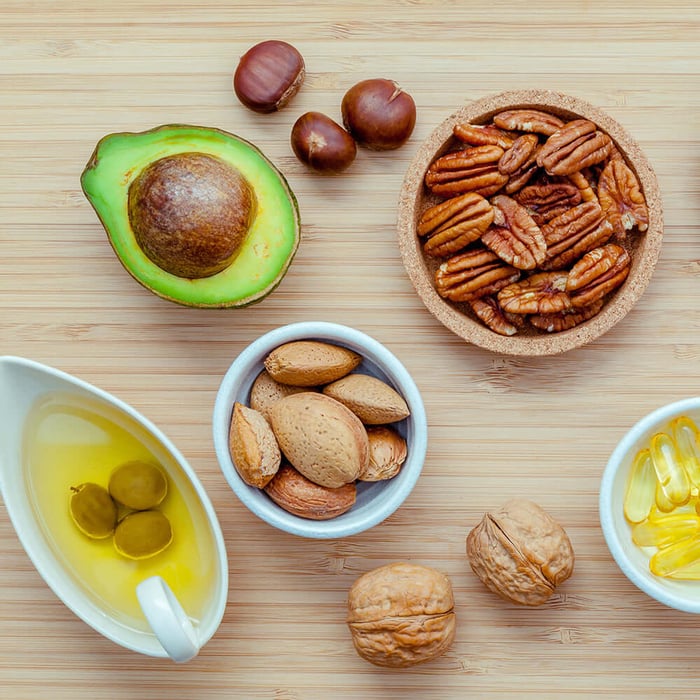Omega 3 Fatty Acids - Simplified
Omega 3 & 6 fatty acids: I am sure you’ve all heard of them, especially the need for omega 3 fish oils so let’s delve a little deeper.
Omega 3 is an essential fatty acid - essential meaning your body can’t make it so you have to get it from your diet. Omega 3 includes EPA and DHA (each with their own health benefits) EPA is often related to cholesterol, and DHA to brain health (especially in childhood - babies absorb lots of DHA from their mothers in the third trimester which is why supplements are often given to pregnant women).
In general, omega 3 has so many health benefits: heart health is one that has received considerable press, it’s great for our general immune system, joint/muscle/cell regeneration for those of you into your fitness and high performance, it’s anti-inflammatory, good for inflammatory bowel disease, migraines, hives…. the list goes on and on.
Off note, Omega 3 is particularly good for women suffering with period related problems, including late/skipped periods, cramps & general PMS management, PCOS, Endometriosis etc.
There are many studies which show that increasing levels of Omega 3 helps significantly with depression, anxiety and ADHD (both with or without hyperactivity) - some of the most prominent mental health problems we have in the UK.
The confusing bit about looking at our levels, is that it’s all about the ratio of Omega 6 to Omega 3 in our diet. We are ideally looking for 3/4:1 respectively. In the Western world most people have really high levels of Omega 6 but very little Omega 3 (usually around 10:1).
Omega 6 is also important and good sources are organic free range animal products, nuts and seeds. Too much omega 6 in comparison to omega-3 however, results in increased inflammation in the body. Most people in the West have high enough (or too high) levels of Omega 6 as our diets are high in animal products, especially processed meat (which are ‘bad’ sources of Omega 6).
So the aim is to increase levels of Omega 3 to ‘balance out’ our levels of Omega 6 (and avoid bad Omega 6 sources e.g. processed foods, especially processed meats). The main Omega 3 containing food we want is oily fish and the best sources are salmon, mackerel and sardine. Followed by anchovy, herring, rainbow trout or tuna. In order to get enough, we want to be eating oily fish a few times a week. However, when it comes to salmon, this is ONLY true in the UK with WILD salmon, farmed salmon is extremely depleted of its Omega 3.
There are vegan sources of Omega 3 (but it takes the body a long time to convert the fatty acid found in the oils of certain plants, into the EPA/DHA we are looking for, and some people may not be able to convert it efficiently or at all). Sources include (from highest to lowest amount) flax seeds, chia seeds, pumpkin seeds, rap seeds, soybean (including tofu/tempeh) and walnuts. In general, nuts, seeds, grains and legumes that grow in cold climates have more concentrated omega 3 than those in hot climates.
Dark green veg (kale, parsley) are also additional good sources. Green veg have chlorophyll in (which is what makes them green) and these contain the fatty acids we can convert into EPA/DHA.
So, pastured (free range) meat also contains Omega 3 - because those animals eat the grass which contains chlorophyll, and they do the conversion for you. Again, this ONLY applies to free range meat/eggs. The same applies for goat/sheep’s cheese (as the goat/sheep also graze on wild grasses/herbs).
If you think you’re not getting enough Omega 3 in your diet, then you can take flax seeds therapeutically…. Around 4 tablespoons a day of ground flax seeds (flax meal which should be bought in a tightly sealed container and refrigerated) or soaked flax seeds (soak for 4-8 hours). Flax meal actually lubricates the intestines and so are also really good for constipation too.
Or of course, you can take fish oil or vegan Omega 3 supplements. I like the brand Bare Biology Omega 3 as it seems to have the highest bioavailability.
Lots of love,
Cassie x
As always, for more information or to book a nutrition consultation you can find me at:
Instagram: @vale.of.health
Website: https://valehealth.co.uk/
Presscription products are explosions of nutrients that will help keep your body in fighting shape.
Presscription products contain a variety of Vegan Omega 3 Sources - check these ones out.
 Why Presscription?
Why Presscription? Why Cleanse?
Why Cleanse? Cleansing Tips
Cleansing Tips What's Pressing?
What's Pressing?






